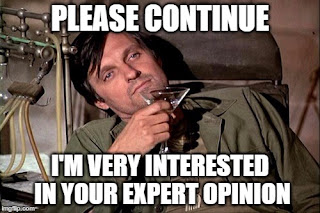Ten years ago I retired on a mental illness disability. It was a relief. It was dreadful. It was a heartbreak. And I was pretty sick.
Being a priest is a public job, and mine had been more public than most. So between retirement and the mental illness that led to it, I felt isolated and had a serious case of Who the hell am I, anyway?
But I sat down, signed up for a blog, wrote my first post, and there it was, my new life, Prozac Monologues: Reflections and Research on the Mind, the Brain, Mental Illness, and Society.
This is the place where I have recorded my learning about what happened to me: genetic variation, childhood trauma, wonky wiring, unhappy mitochondria, that broken internal clock... followed by misdiagnosis of Major Depressive Disorder, inappropriate antidepressant medication, a bit of psychiatric manipulation, a new diagnosis of Bipolar 2. And then recovery. Not cure, but recovery, as in the way I live the rest of my life.
It is where I have puzzled through philosophical issues about mental illness and its treatment, political issues about society's response, stigma/prejudice, the use of language, how art can soothe the savage brain, how mental illness comedy can give voice to what cannot otherwise be said.
It is where I have discovered psychiatrists and others whose work I admire: Ronald Pies, David Conroy, Hagop Akiskal, Jill Bolte Taylor, John McManamy, Nancy Andreasen, Nasser Ghaemi, and some others... not so much.
My readers have read my rants, my musings, and even my sermons. And some of you have made comments that told me I needed to keep going.
Which I did.
Thank you for that.
To mark the occasion, Prozac Monologues, the blog has been given a facelift. There may be a few more tweaks in the days to come. Actually, I'll invite you to make suggestions. Broken links have been removed from the Mental Health Break list on the right. I could use some new ones. What are your favorite videos and sites that would fit the category? Click the link for comments at the bottom of the post.
One more thing: Prozac Monologues: Are You Sure It's Just Depression -- promised so long ago in that first post will be coming to your local bookstore in September 2020! Published by She Writes Press, distributed by Ingram Publication Services, you can follow its progress on my author page. And Twitter, that thing into which authors are dragged kicking and screaming by their publicists (mine is JKS Communications), yes, I am on Twitter, too @WillaGoodfellow.
Again, thank you for reading. That will be my dedication in the book: I wrote this for you.
Being a priest is a public job, and mine had been more public than most. So between retirement and the mental illness that led to it, I felt isolated and had a serious case of Who the hell am I, anyway?
But I sat down, signed up for a blog, wrote my first post, and there it was, my new life, Prozac Monologues: Reflections and Research on the Mind, the Brain, Mental Illness, and Society.
This is the place where I have recorded my learning about what happened to me: genetic variation, childhood trauma, wonky wiring, unhappy mitochondria, that broken internal clock... followed by misdiagnosis of Major Depressive Disorder, inappropriate antidepressant medication, a bit of psychiatric manipulation, a new diagnosis of Bipolar 2. And then recovery. Not cure, but recovery, as in the way I live the rest of my life.
It is where I have puzzled through philosophical issues about mental illness and its treatment, political issues about society's response, stigma/prejudice, the use of language, how art can soothe the savage brain, how mental illness comedy can give voice to what cannot otherwise be said.
It is where I have discovered psychiatrists and others whose work I admire: Ronald Pies, David Conroy, Hagop Akiskal, Jill Bolte Taylor, John McManamy, Nancy Andreasen, Nasser Ghaemi, and some others... not so much.
My readers have read my rants, my musings, and even my sermons. And some of you have made comments that told me I needed to keep going.
Which I did.
Thank you for that.
To mark the occasion, Prozac Monologues, the blog has been given a facelift. There may be a few more tweaks in the days to come. Actually, I'll invite you to make suggestions. Broken links have been removed from the Mental Health Break list on the right. I could use some new ones. What are your favorite videos and sites that would fit the category? Click the link for comments at the bottom of the post.
One more thing: Prozac Monologues: Are You Sure It's Just Depression -- promised so long ago in that first post will be coming to your local bookstore in September 2020! Published by She Writes Press, distributed by Ingram Publication Services, you can follow its progress on my author page. And Twitter, that thing into which authors are dragged kicking and screaming by their publicists (mine is JKS Communications), yes, I am on Twitter, too @WillaGoodfellow.
Again, thank you for reading. That will be my dedication in the book: I wrote this for you.



















































